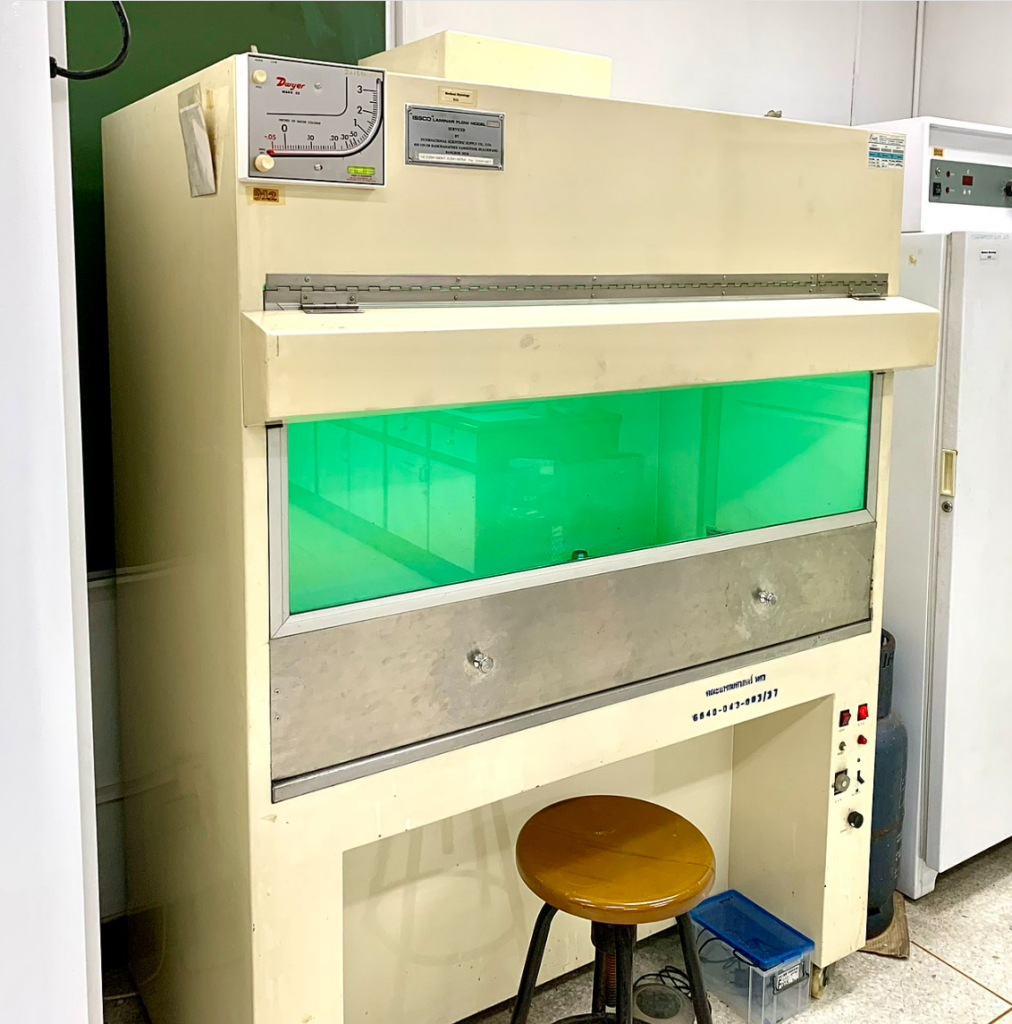Laminar flow refers to a smooth, regular flow of a fluid (liquid or gas) in which the fluid moves in parallel layers with minimal disruption between the layers. In laminar flow, the particles of the fluid follow streamlined paths, and their velocity and direction are well-organized. This is in contrast to turbulent flow, where the fluid moves chaotically with irregular fluctuations and mixing of particles.
Laminar flow is characterized by its predictability and stability, making it particularly desirable in various applications where control over particle movement and prevention of contamination are critical. Industries such as pharmaceuticals, biotechnology, electronics manufacturing, and healthcare extensively use laminar flow systems to create clean and sterile environments.
Laminar Flow Equipment
Laminar flow is achieved through the use of specialized equipment designed to control the movement of air or fluids in a specific manner. Here are some key pieces of laminar flow equipment:

1. Laminar Flow Benches and Hoods:
Horizontal Laminar Flow Benches: In these systems, air flows horizontally from the back to the front of the work area. They are commonly used in laboratories for tasks requiring a sterile environment.
Vertical Laminar Flow Benches: Here, air moves vertically from the top of the work area to the bottom. These are often utilized in environments where contamination control is crucial.
2. Cleanrooms:
Cleanrooms are controlled environments with a high level of cleanliness achieved through laminar flow principles. The entire room is designed to maintain a specific level of cleanliness, typically classified by ISO standards.
3. HEPA (High-Efficiency Particulate Air) Filters:
HEPA filters are crucial components in laminar flow systems. They are highly efficient at trapping particles and microorganisms, ensuring that the air entering the laminar flow area is free from contaminants.
4. Fan/Blower Systems:
To create laminar flow, a system of fans or blowers is employed to move air in a controlled manner. These systems are designed to generate a unidirectional flow with minimal turbulence.
5. Air Ducts and Plenums:
Well-designed air ducts and plenums help guide the airflow smoothly through the laminar flow system. They are constructed to minimize disturbances and maintain the integrity of laminar flow.
6. Velocity Control Systems:
Systems that control the velocity of the air or fluid are essential. This ensures that laminar flow is maintained at the required rate to prevent turbulence.
7. Glove Boxes:
In applications where a sterile environment is crucial, glove boxes with laminar flow systems are used. These enclosed workspaces allow operators to handle materials in a controlled atmosphere.
8. Pass Boxes and Transfer Hatches:
These are used for the transfer of materials between different cleanroom areas without compromising the cleanliness of either side. Laminar flow within these devices prevents the ingress of contaminants.
9. Validation and Monitoring Equipment:
Instruments for monitoring and validating laminar flow systems, such as particle counters and airflow velocity sensors, are essential to ensure that the desired level of cleanliness is maintained.
10. Anterooms and Air Showers:
Anterooms act as buffer zones between cleanroom areas and external environments, preventing contaminants from entering. Air showers use high-velocity, laminar airflow to remove particles from personnel before entering the cleanroom.
11. Regulators and Control Systems:
Systems that regulate and control the laminar flow, adjusting parameters such as airflow velocity, pressure differentials, and temperature.
It’s important to note that the design and selection of laminar flow equipment depend on the specific requirements of the application and the industry standards governing cleanliness and contamination control. Regular maintenance and monitoring of these systems are crucial to ensuring their effectiveness over time.

